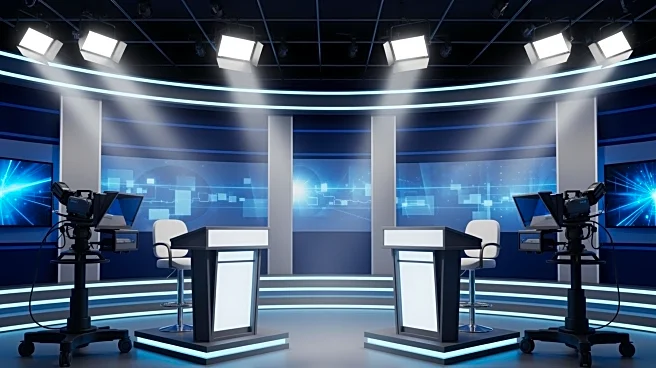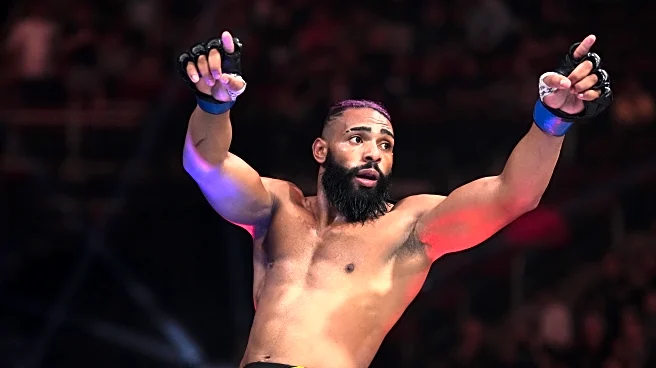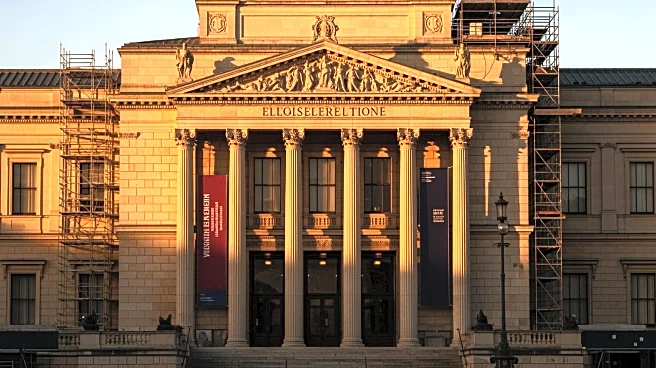What's Happening?
NBC 4 New York/WNBC and Telemundo 47/WNJU reported a significant increase in viewership for the recent New York City mayoral debate held on October 16, 2025. The debate attracted a combined total of 2,379,908 viewers across both linear and streaming platforms,
marking a 190% increase compared to the June 16 primary debate. The broadcast on WNBC and WNJU alone garnered 922,663 viewers, a 95% increase from the previous debate. Additionally, digital and streaming platforms recorded 1,457,245 views, reflecting a 321% increase. The debate was moderated by WNBC News Anchor David Ushery, WNBC Political Reporter Melissa Russo, WNJU News Anchor Rosarina Breton, and POLITICO Senior New York Editor Sally Goldenberg. Social media engagement was also high, with debate-related posts achieving 34.5 million video views.
Why It's Important?
The substantial increase in viewership for the NYC mayoral debate underscores the heightened public interest in the city's political landscape and the upcoming election. This surge in audience engagement suggests that New Yorkers are keenly focused on the issues and candidates that will shape the future of their city. The debate provided a platform for candidates to address critical topics, influencing voter decisions. The high engagement across digital platforms indicates a shift in how audiences consume political content, emphasizing the importance of accessible and diverse media channels in reaching a broader demographic. This trend could impact future political campaigns and media strategies, highlighting the need for candidates to effectively utilize both traditional and digital media to engage with constituents.
What's Next?
As the election approaches, candidates will likely intensify their campaign efforts to capitalize on the increased public interest demonstrated by the debate's viewership. Media outlets may continue to leverage digital platforms to reach wider audiences, potentially influencing the format and accessibility of future political debates. Voter turnout could be affected by the heightened engagement, prompting political analysts to monitor the correlation between media consumption and electoral participation. Stakeholders, including political parties and advocacy groups, may adjust their strategies to align with the evolving media landscape, focusing on digital outreach and engagement to mobilize voters.
Beyond the Headlines
The record viewership of the NYC mayoral debate may reflect broader societal trends, such as increased civic engagement and the demand for transparency in political processes. The role of media in shaping public discourse and influencing political outcomes is becoming increasingly significant, raising questions about media responsibility and the impact of digital platforms on democratic participation. This development could lead to discussions on media ethics, the balance between informative content and sensationalism, and the role of social media in political polarization.














